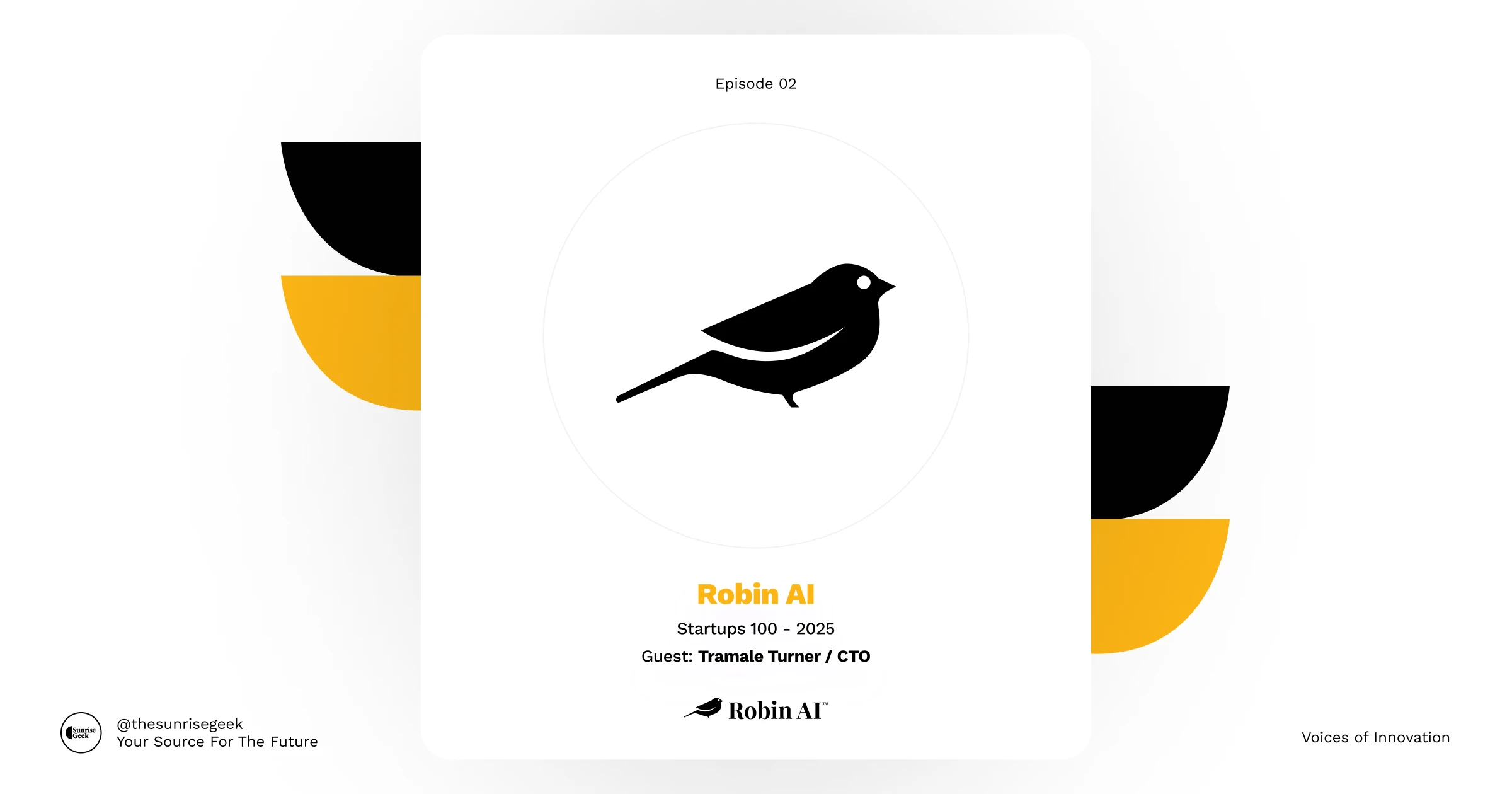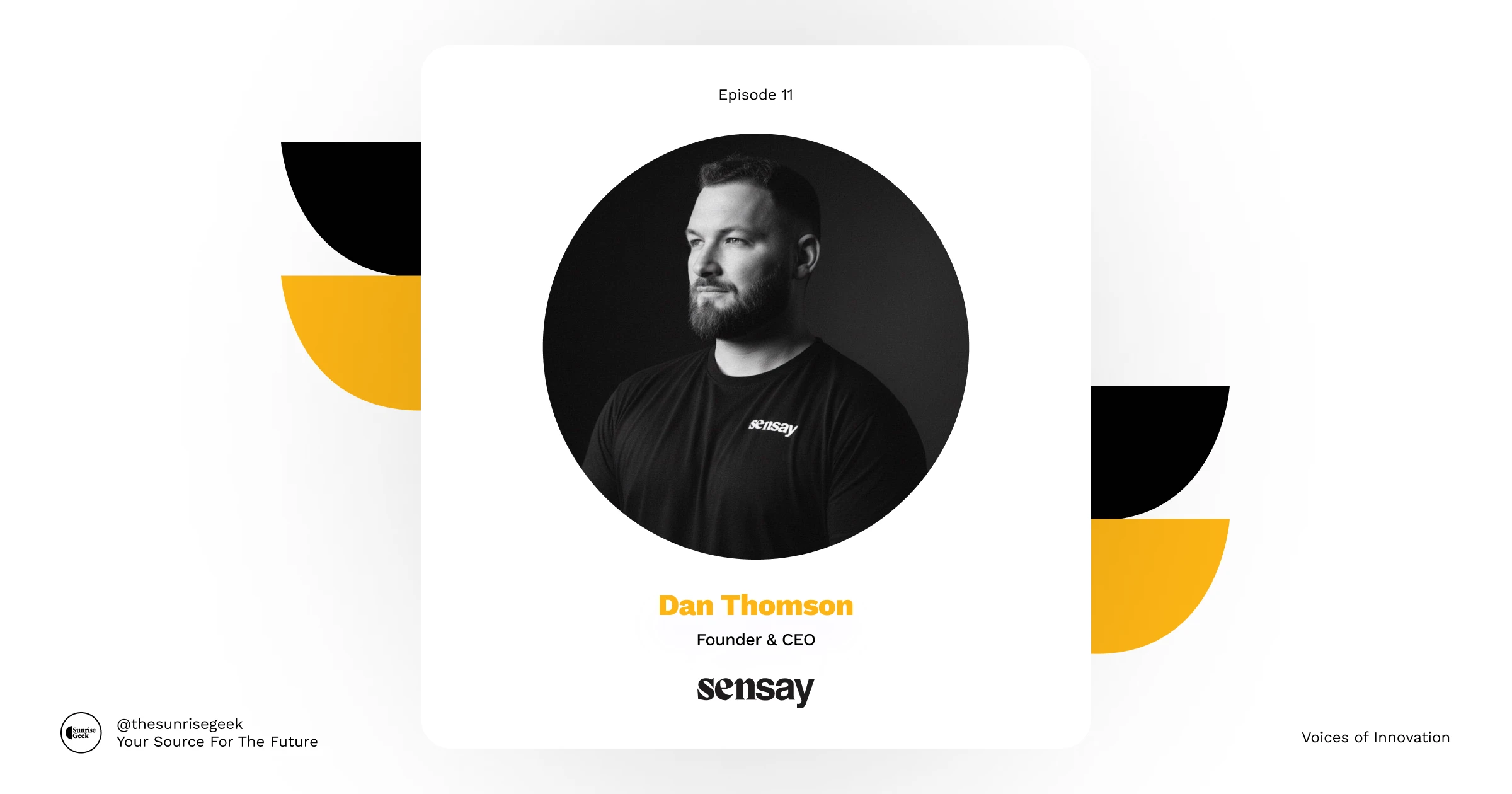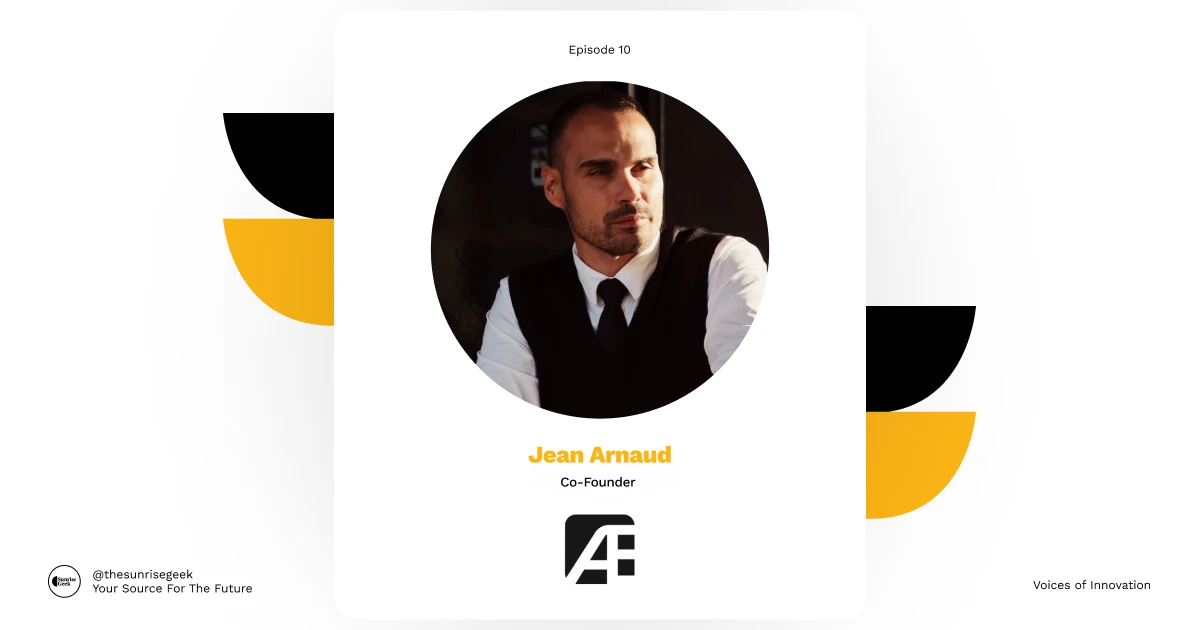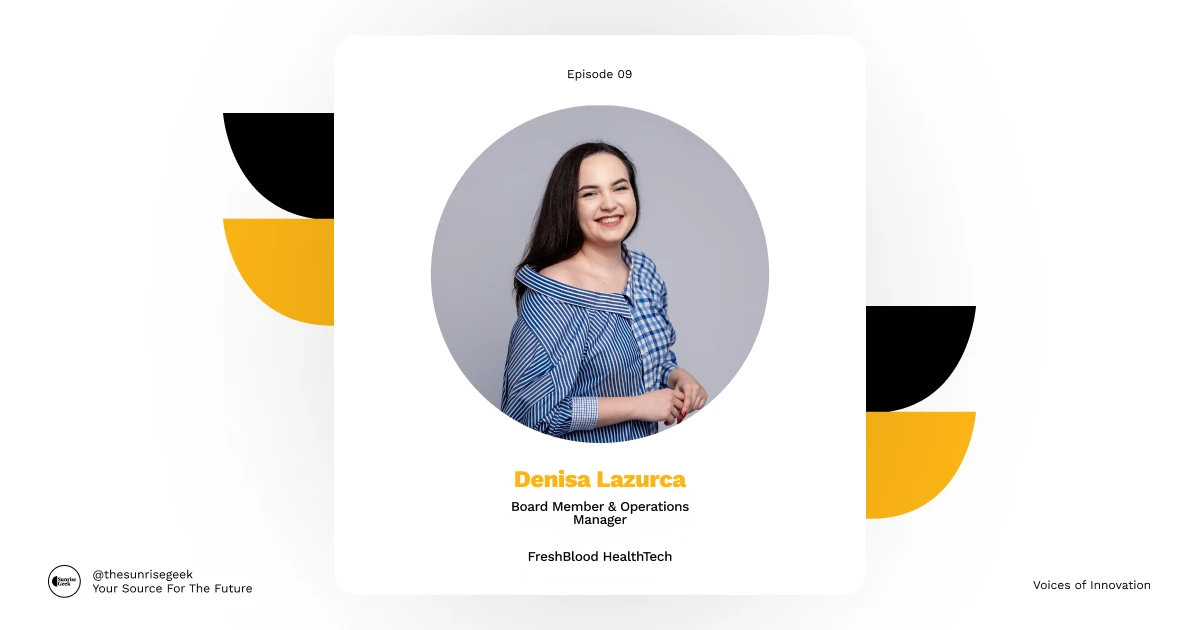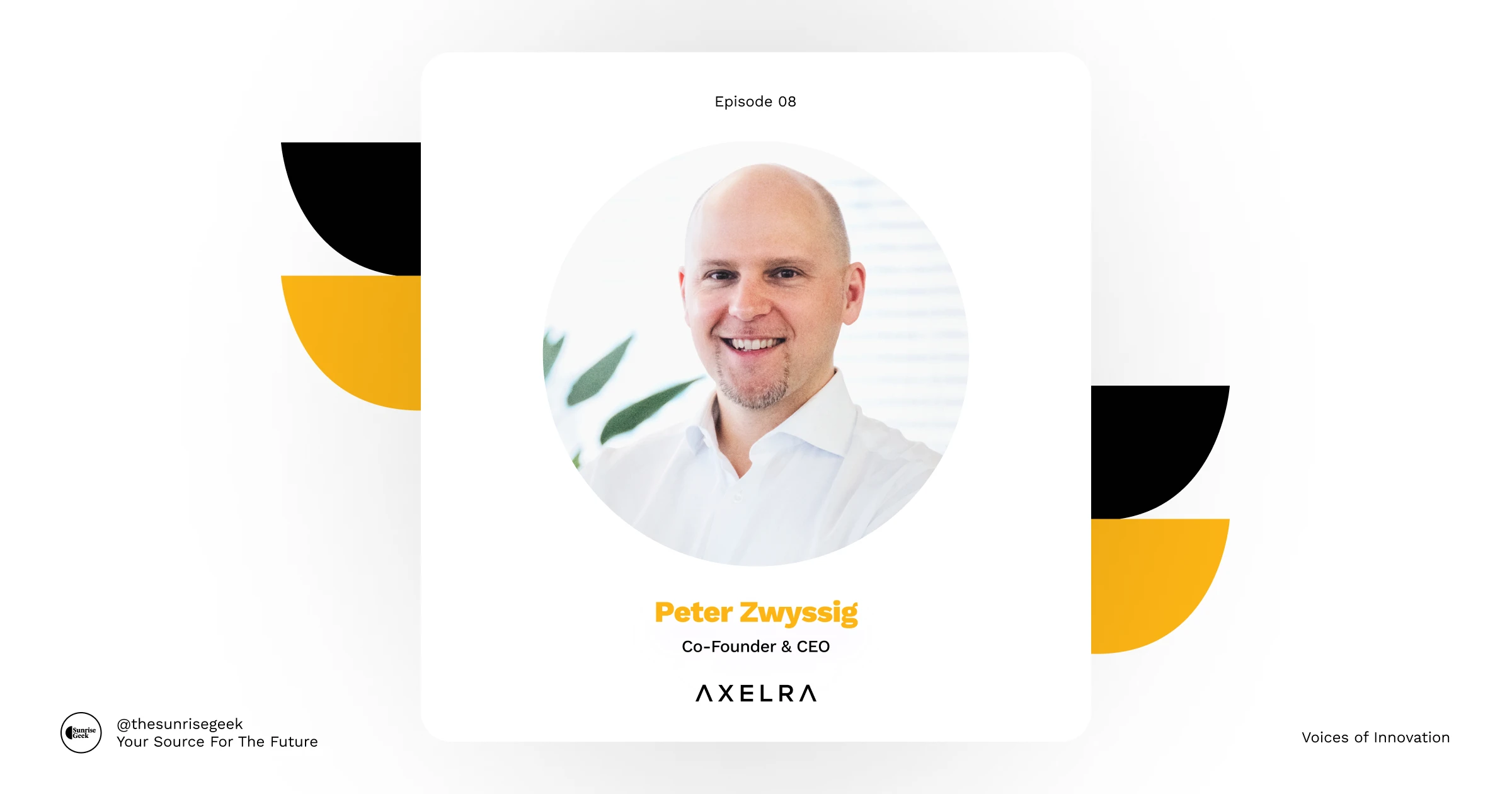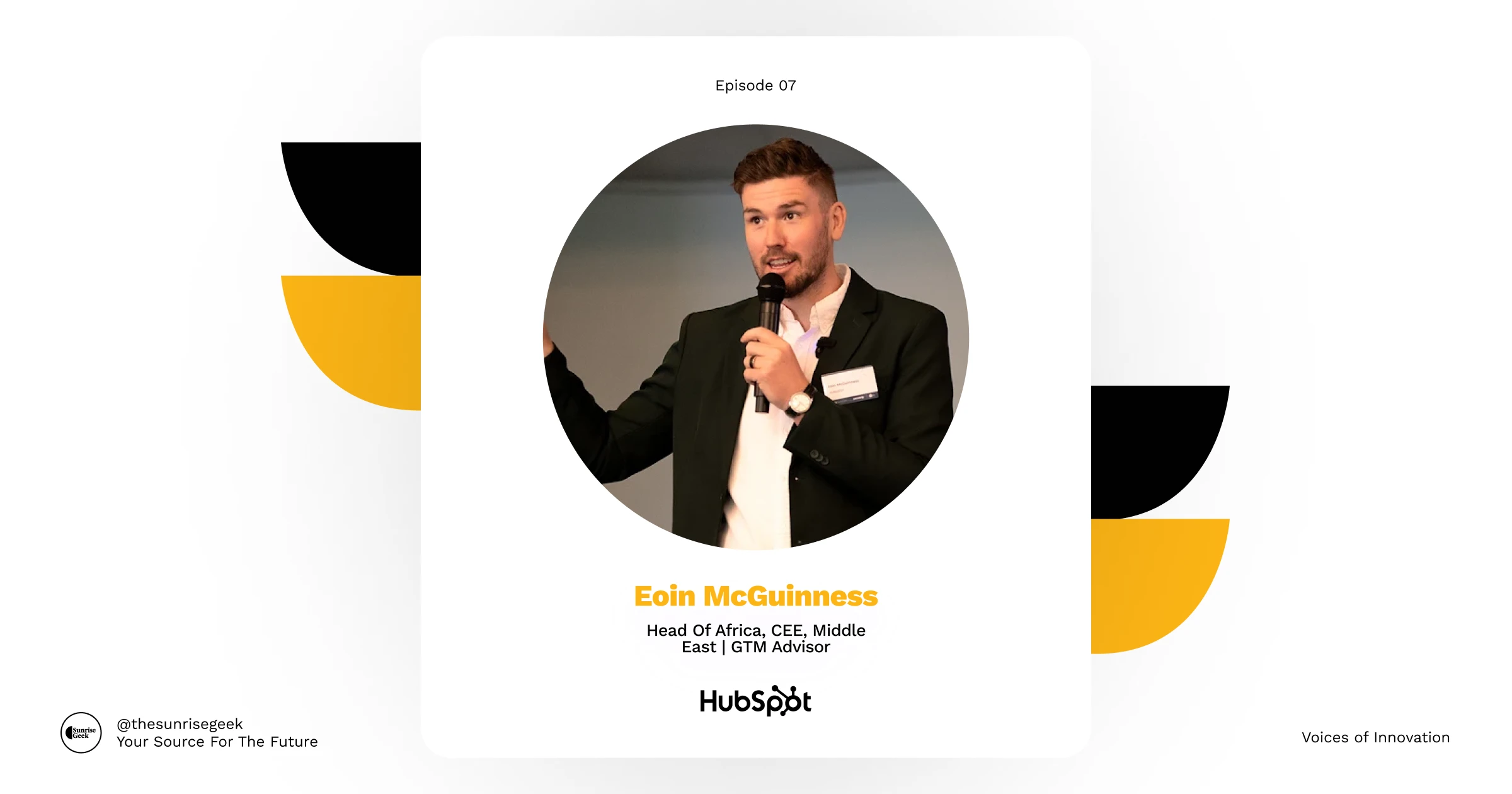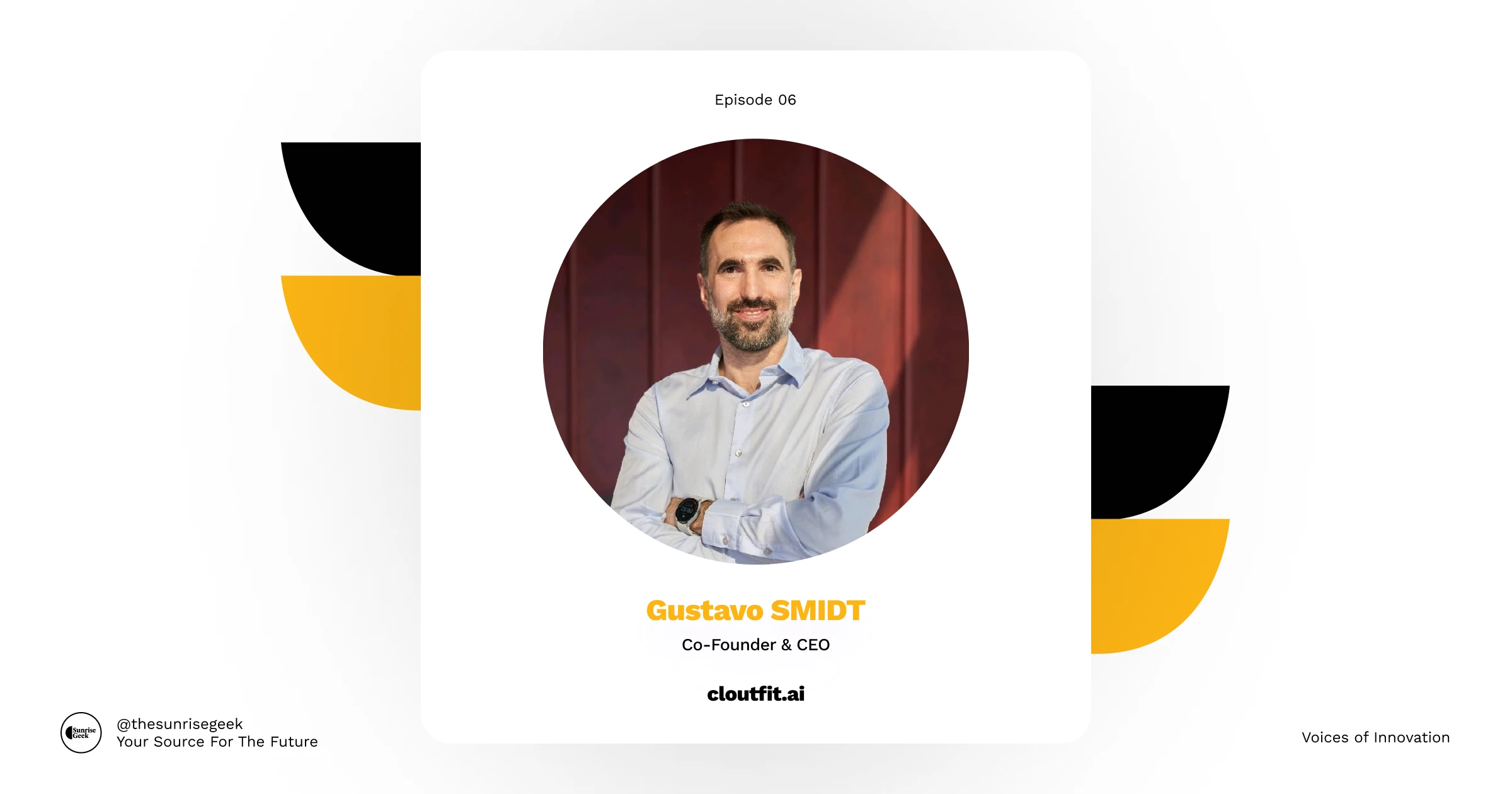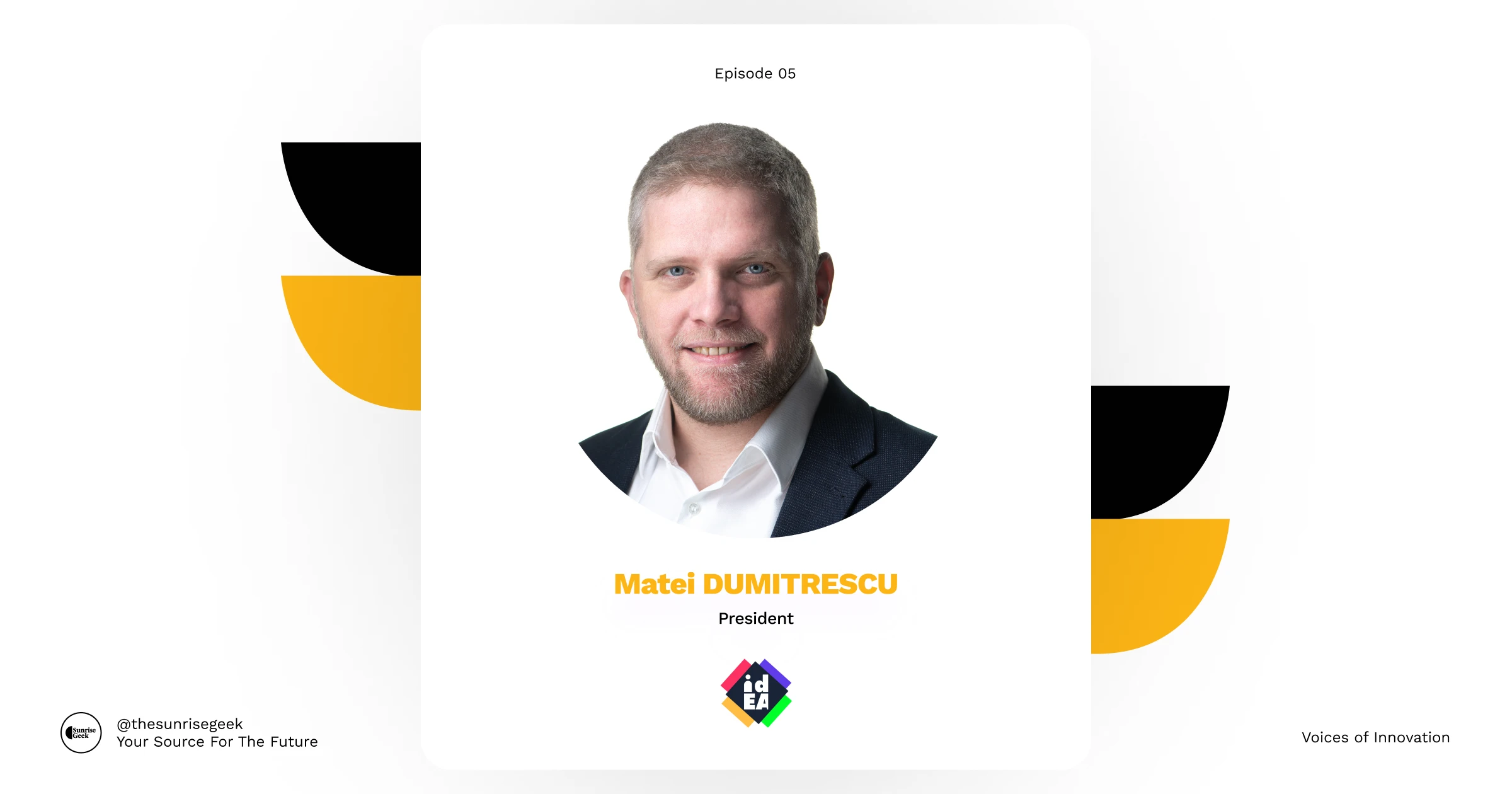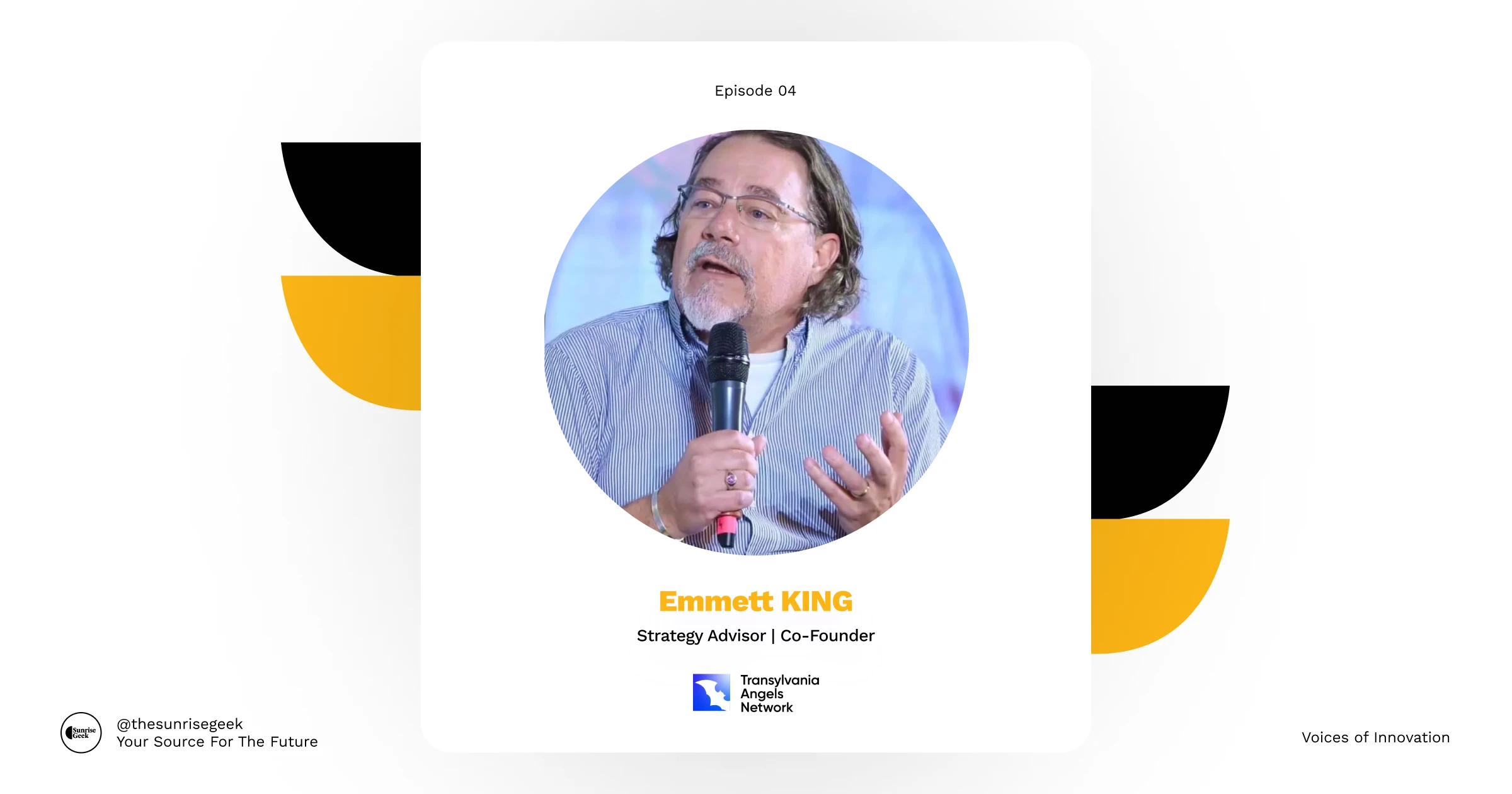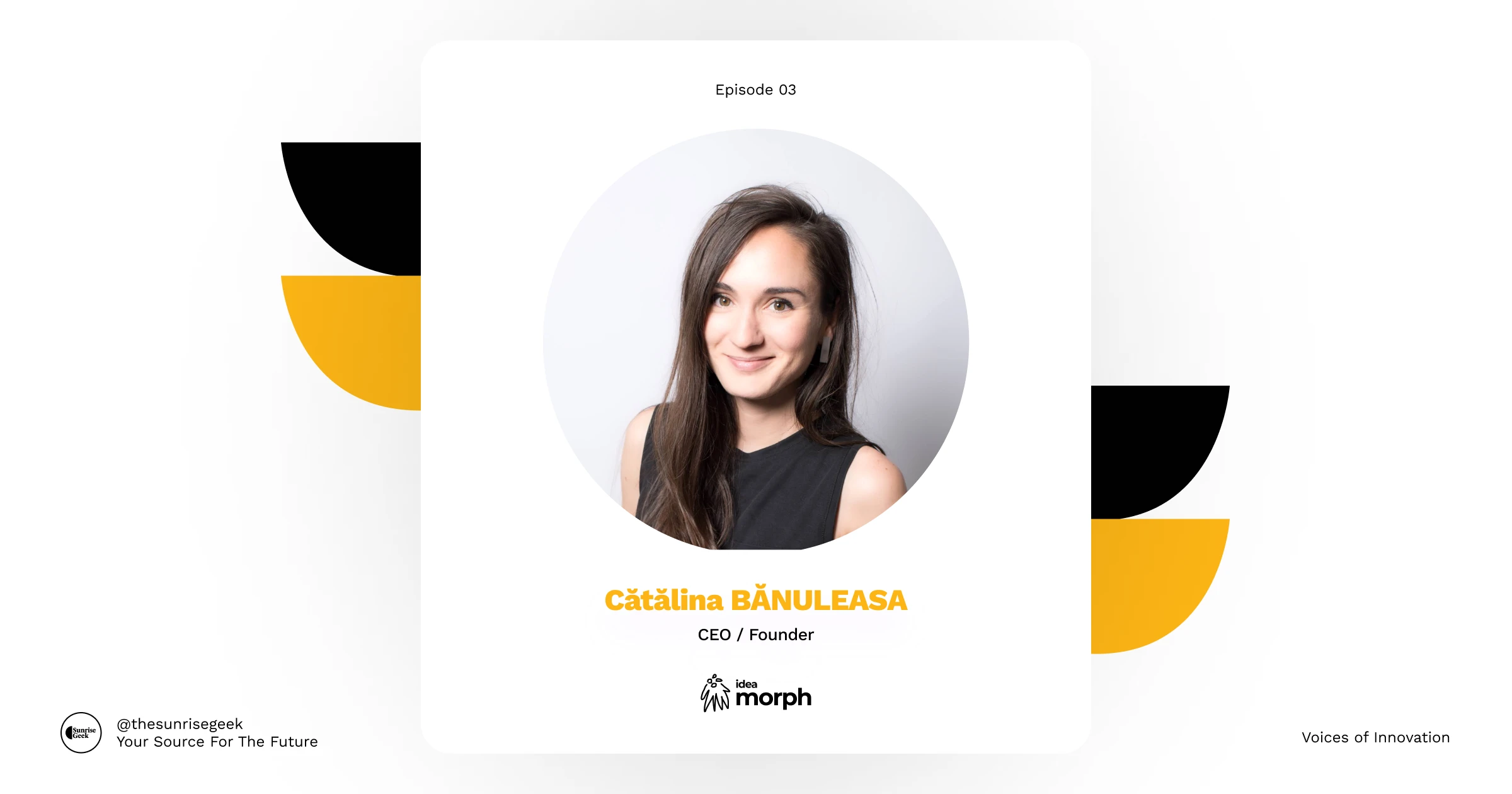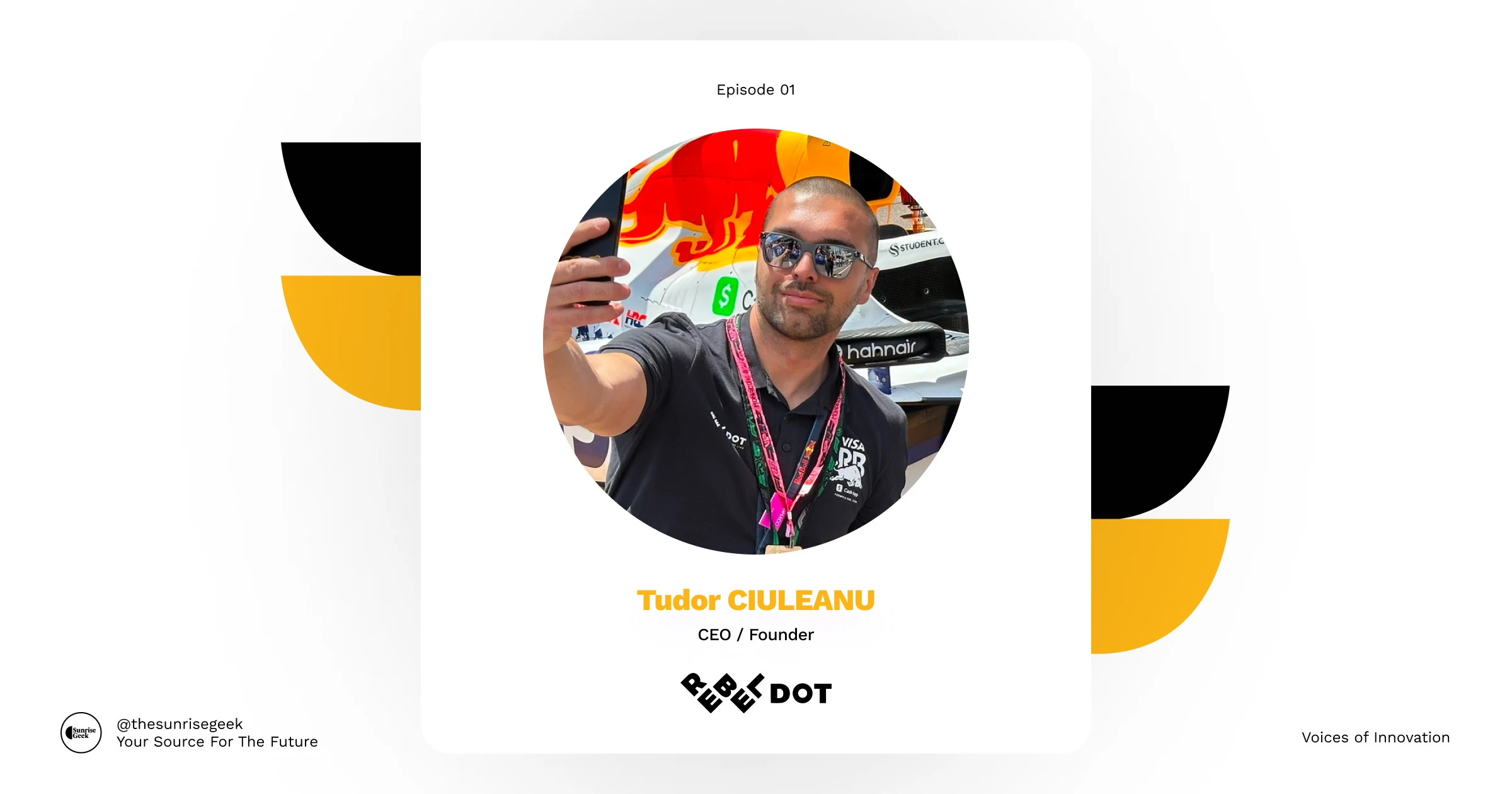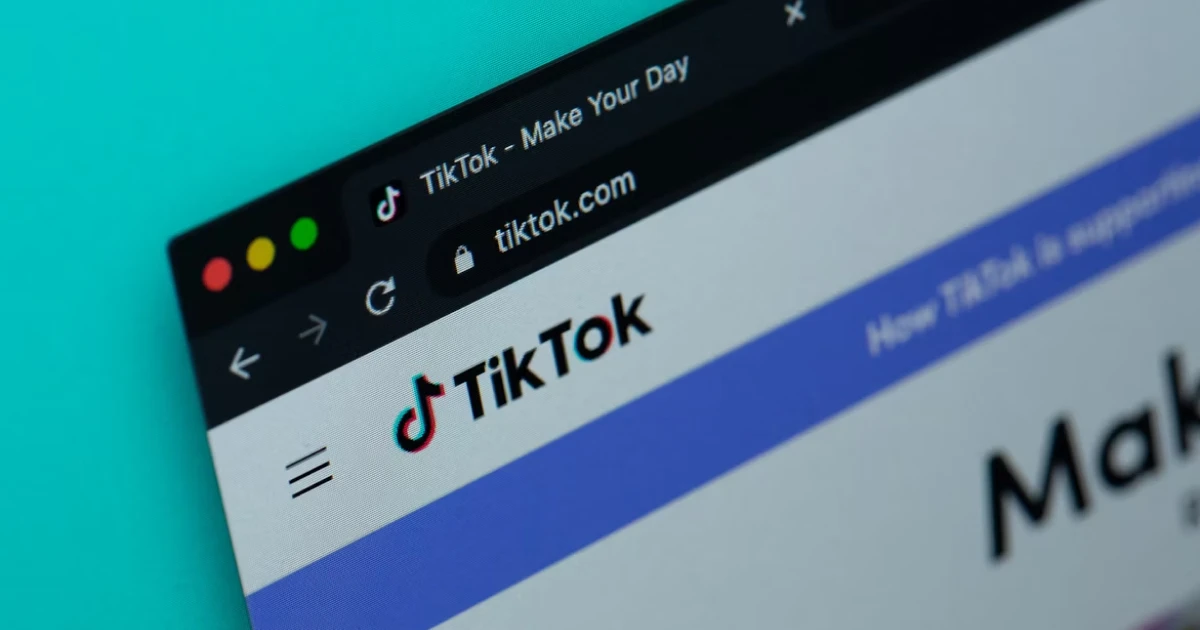Meet Our Guest

Robin AI is a legal technology company that uses artificial intelligence to help businesses create, review, and manage contracts more efficiently.
“We’ve pioneered a human-in-the-loop service that combines proprietary machine learning technology, software engineering, and the expertise of a human legal professional to produce high-quality edited contracts at record speeds,” said Richard Robinson, the founder of the company.

This is how our future would look. A space where we can receive guidance from artificial intelligence for our legal matters, helping lawyers get everything done more efficiently.
Before launching RobinAI, the founder of the company, Richard, was a corporate lawyer who observed the needs of his colleagues and himself. He observed how their work included repetitive tasks and how those tasks were taking up precious time. Reading contracts, researching case law was taking up more of the time he had, leading to less time spent on valuable legal advice.
This is how the company started, how the lightbulb moment hit and influenced Richard Robinson to create RobinAI.
In 2024 alone, the UK-founded startup expanded its US operations six-fold, secured major clients like GE, Pfizer, and UBS, raising $25 million in a round led not just by VCs but also by their customers.
For this kind of rare moment, especially in a crowded field where many AI startups struggle to differentiate themselves. Yet, Robin AI’s strategy is refreshingly focused as it combines deep legal expertise with proprietary AI, builds trust through transparency, and solves real pain points that legal teams face every day.
All this growth was, however, due to deliberate decisions and relentless execution. “We prioritized serving enterprise clients by offering solutions that address the most pressing needs of large legal teams—speed, accuracy, and security in contract review and analysis,” the company mentioned in the interview.
Even more so, a tool that has helped the growth of the company was the launch of RobinAI Reports, a tool that has the ability to enables legal teams to summarize and analyze thousands of contracts at the same time. This capability has led to productivity gains of up to 50x.
In order for this to happen, Richard Robinson, the CEO and founder of the company, has relocated to New York, sustaining a boots-on-the-ground approach to better understand and serve the US market “This hands-on approach has allowed us to understand the unique needs of American legal teams and adapt our solutions accordingly,” the team added.
Funding to Fuel the Future
RobinAI has now raised almost $70 million to date, also including their latest $25 million round. Yet, rather than overextending the company is deploying capital carefully, looking into investing in global expansion and accelerating the product development process.
“We’re strategically deploying this capital across three priorities,” the company said. “First, we’re expanding globally—particularly in Asia-Pacific, where we’ve opened a Singapore office. Second, we’re investing heavily in R&D to evolve into what we call a ‘Legal Intelligence Platform’—one that integrates seamlessly with legal workflows.”
This move also reflects Robin AI’s larger ambition of becoming the infrastructure used by the new wave of legal teams, rather than just another AI tool.
Competing by Not Competing
With the growth of general-purpose AI tools such as ChatGPT, Gemini as well and Grok, multiple legal tech startups are in the race to secure those LLMs into existing workflows. Robin AI is, however, on a different path.
RobinAI has also added in the interview that “We’re an AI-native company, but we’re also deeply embedded in the legal world,” and that “Our AI models are trained on over 100 million contract clauses—data that’s typically unavailable to public LLMs. And we pair that with a 90-person legal team for human-in-the-loop validation. That means higher accuracy, better outcomes, and no surprises.”
As a result, their approach is starting to win respect due to their user-first approach. It is also worth noting that the startup is aligning its initiatives with its customers. “We avoid over-promising, and we design systems that center user trust,” the company mentioned.
Another positive note on Robin’s AI legal-grade capabilities is two powerhouse partnerships with Anthropic and Amazon Web Services. Thanks to easy access to Anthropic’s Claude models, RobinAI is able to process up to 150,000 words per prompt, making it ideal for complex legal documents.
The team also mentions, “This capability is essential for analyzing lengthy contracts where context matters enormously,”. At the same time, AWS makes it possible the deploy these models in private, secure environments with the integration of Amazon Bedrock, which is critical for legal departments that cannot compromise on data privacy “Our clients’ data never leaves a secure environment or gets used for model training,” as the company mentioned.
Trusted by the World’s Largest Companies
Robin AI’s client list reads like a who’s who of global enterprise, including Pfizer, UBS, GE, and other blue-chip names. The company also mentioned, “Enterprise-grade security is non-negotiable,” also adding, “We’re GDPR-compliant, ISO27001- and SOC2-certified, and we use a private AWS deployment. That gives clients confidence that their data is safe and will never be repurposed for training.”
Yet, it’s not just about compliance. Robin AI’s tools deliver real ROI when one biotech client faced a serious data breach; Robin AI helped them scan over 8,000 contracts across 30 contract types – within hours, helping them save over $2 million in potential exposure.
“Our ‘lawyer-in-the-loop’ approach ensures that AI-driven results are always validated by legal experts,” the team said. “We’re not replacing lawyers—we’re empowering them.”
From Global to Local Law Firms
Robin AI is branching into a new customer segment that supports 60,000+ small and mid-sized law firms around the world. “Our partnership with Dye & Durham represents a strategic expansion into serving this market,” the team noted. “It requires a tailored approach, which we’re launching as Unity Contract Draft and Review in early 2025.”
Compared to large corporate legal teams, smaller companies and firms are most of the time operated on fixed-fee billing models where efficiency directly impacts profitability. Robin AI’s integration into Dye & Durham’s Unity platform means lawyers can benefit from AI-driven contract analysis without changing how they work.
“Rather than requiring them to learn new systems, Robin AI becomes a natural extension of their existing practice management workflows.”
Robin AI and the Paradigm Shift in Legal Work
Robin AI also reports that more than just a product update now marks a shift in how legal due diligence, along with compliance audits and contract analysis, are performed.
“Robin AI Reports can analyze thousands of contracts in minutes, saving lawyers hundreds of hours annually and fundamentally changing the economics of large-scale legal review.”
Where once only the elite firms would have access and could afford comprehensive document analysis, RobinAI is coming with a democratization method to do so. The tool’s “Answer Types” feature even turns unstructured legal language into structured data, enabling integrations with business intelligence and compliance systems.
“Now, any organization can perform sophisticated due diligence, risk assessments, or audits at scale,” stated the team.
Robin AI’s CTO on Building with Respect
When Tramele Turner stepped into the role of CTO at Robin AI, he brought with him a deep-seated belief that technology should elevate the user, not challenge their identity or professional instincts. For an industry as process-bound and precedent-driven as law, this way of thinking it’s not just refreshing, it proves to be essential.

“Lawyers have a storied career and a very set way of doing things,” Turner says. “Trying to add technical toil or interrupt existing workflows is the wrong approach.”
Even more so, instead of forcing lawyers into unfamiliar systems, Robin AI is working to meet them exactly where they are, both technologically and when it comes to culture. The outcome? Tools that have the ability to feel less disruption and more like evolution.
“Our focus is on building beautiful software,” he adds, “which means creating experiences that fit naturally into lawyers’ daily rhythms while giving them those magical moments of insight.” This has the power of focusing on seamless integration, and deep respect for legal workflows is a clear differentiator in a crowded AI marketplace.
Trust Is Earned, Not Engineered
In a society where only 4% of people fully trust AI to deliver legal advice, Robin AI’s approach is deliberately cautious as well as intentionally collaborative. “We’re very clear: we do not give legal advice,” Turner emphasizes. “Our mission is to make lawyers more effective, not obsolete.”
Instead of positioning AI as a replacement, the company sees its role as an enabler, meaning an intelligent assistant that handles the heavy lifting that comes with repetitive analysis, leaving the human professionals to do what they do best – exercise judgment, nuance, and strategy.
“If we can help make legal advice more cogent and efficient, we’ve done our job,” says Turner. “But the final say should always come from the lawyer.”
With this approach, the AI is rooted in accountability, feeling especially resonant in a moment where questions of trust, transparency, and ethical application dominate the discourse.
The Map for the Real Legal Work
As the artificial intelligence company looks into the near future in the next 12-18 months, the focus is not just on innovation but also on relevance. Turner and his team are preparing for a major platform update that will respond directly to what they’ve learned from their customer base, spanning in-house legal teams and mid-sized establishments.
“A lot of our competitors aren’t going deep enough into how legal professionals actually work,” he explains. “We’ve spent months listening to clients, and now we’re building a platform that reflects what they truly need.”
Yet, Turner is not overly concerned with the challenges that arise in the legal tech space. Instead, he sees an open field of opportunities. “Legal services globally represent over $1 trillion in annual value. Our job is to increase the GDP of that sector by helping lawyers be better, faster, and more impactful.”
The CTO of Robin AI also has a clear vision when it comes to where the legal profession is headed – a space where the divide will be less about companies and more about mindset.
More so, this prediction is not just theory; Turner mentioned data from sources such as Mary Meeker’s State of AI report, where it is highlighted the way in which AI adoption is moving faster than ever before.
“If you’re in-house counsel at a large company, I can almost guarantee your organization is already using LLMs or agentic AI. And that means your legal team needs to keep pace.”
With technology moving this fast, even AI policy is now table stakes, mentioning “Attorneys need to be where their clients are going, not where they’ve always been.”
What the Future Holds: From Co-Pilot to Conversation
When it comes to what the future holds, what excites Turner the most is not what the company is building today, but rather what technology might make possible tomorrow. As foundational models improve, so too does the company’s ability to craft smarter, faster, and more intuitive tools.
“Memory, inference, reasoning—they’re all improving with every new model release,” he notes. “That means we’ll soon be able to build workflows that were unthinkable a year ago.”
The real wildcard? Is the interface itself. Today’s tools rely on chat windows and static panels. But Turner believes the future may look—and sound—very different.
“Maybe the next legal AI interface is voice-based. Maybe it’s augmented reality. Maybe it’s something totally new, like a robotic assistant that literally runs alongside you while prepping for your next case.”
These ideas may sound like science fiction, but in a field where the “impossible” becomes “production-ready” in months, Turner’s outlook feels more like foresight than fantasy.
“The limitations we faced last year are vanishing week by week. It’s no longer about what’s possible—it’s about what we choose to build.”




